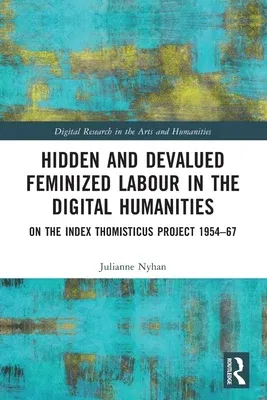Julianne Nyhan
(Author)Hidden and Devalued Feminized Labour in the Digital Humanities: On the Index Thomisticus Project 1954-67Paperback, 20 December 2022

Qty
1
Turbo
Ships in 2 - 3 days
Only 2 left
Free Delivery
Cash on Delivery
15 Days
Free Returns
Secure Checkout

Part of Series
Digital Research in the Arts and Humanities
Print Length
242 pages
Language
English
Publisher
Routledge
Date Published
20 Dec 2022
ISBN-10
0367685981
ISBN-13
9780367685980
Description
Product Details
Author:
Book Format:
Paperback
Country of Origin:
US
Date Published:
20 December 2022
Dimensions:
23.39 x
15.6 x
1.37 cm
ISBN-10:
0367685981
ISBN-13:
9780367685980
Language:
English
Location:
Oxford
Pages:
242
Publisher:
Weight:
362.87 gm